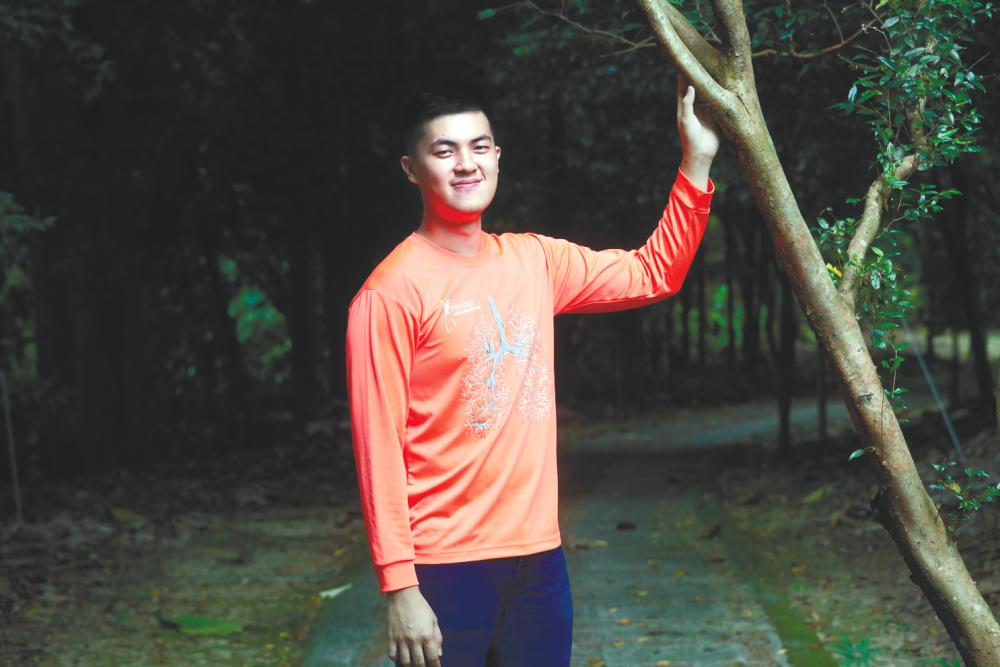LOOK no further than your own backyard or neighbourhood if you would like to join the cause of protecting the green around you, according to 23-year-old Tan Kai Ren.
Tan is currently the project manager for The Rimba Project (RIMBA), which he has been involved with since his first semester studying Ecology and Biodiversity at University Malaya.
Last year, while still a third-year student, Tan earned the title of top observer in the global City Nature Challenge. With his combined passion for urban biodiversity conservation and photography, Tan says that anyone can be a nature observer - and you can even start with an app like iNaturalist.
What has been your most interesting or significant find?
“One of the most amazing things I found in the city is actually, bats.
“When I first joined UM, I had the opportunity to work under a PhD student, who has now graduated to become a doctor. She was working on the biodiversity of bats in Malaysia. Every week, we would have at least two to three nights [where] we would go into abandoned bungalows around UM, and we will set up nets, and wait for the bats to come.
“Bats are very special because they play an [important] role in the ecology of the city. They eat fruits, so the faeces or droppings from the bats will have undigested seeds. These seeds would germinate and become a new tree within the city. So they are important pollinators of, for example, durian.
“The close encounter with bats is very memorable because not everyone can handle bats. And to handle bats, you need to have certain skills. She taught me things like how to hold a bat so that it doesn’t bite you, because they have strong jaws. Before I joined the project, I didn’t know that bats are in the [city].”
What is one thing you think everybody should try at least once?
“[One programme] I came up with is the Rimba Garden Thursday. Every Thursday, we will have volunteers come in and do some gardening work, because we wanted to revive the conservation nursery project.
“I want to get people involved in gardening and planting ... and then they can grow their own vegetables as well.
“Getting a vegetable is not, oh, you go to the market and just buy. It’s harder than that. It takes longer than that. And I think, getting people involved in planting their own home-garden will make them appreciate food more, because one of the very serious problems in Malaysia is that we have a lot of food wastage.
“And if everyone has a vegetable garden at home, they can actually increase the urban biodiversity. Of course, fruits will definitely be food for a lot of animals. A lot of people plant bananas, papayas, even durian at home. Usually, we will attract a lot of civet cats and bats, which are good for the environment, actually.”
What are the joys that come with observing nature?
“When you ... immerse yourself in nature, you will always find something different, because you are going into a 3D space where there is a lot of different elements.
“[If] you are in the wild, in nature, if you go in twenty years later, that thing will grow or that thing will die, and everything will change, even in a short period of time.
“Nature is totally different from a man-made environment, and when you see something different and beautiful every time you go in, I think that’s the joy because you go in without expectations. If you go in without expectations, you will always find something amazing.”
What does it take to be a nature observer, and how can someone get involved?
“Anyone can be a nature observer. It doesn’t mean you need to have a background [in it]. You don’t have to know what grass is that, or what flower is that. You just need to take a picture, and then you put it up on iNaturalist (a global a citizen science project), and some people that have more experience and more expertise, can help to identify for you.
“[When] we talk about conservation, we always focus on something that’s far, that’s deep in the jungle, that’s huge, that’s charismatic.
“But if you talk about the conservation of a weed or ... a wild plant, [people will] say: ‘What? This is so common’. But if we don’t try to look out for these common things, [or] we don’t care about these common things, someday, they will become uncommon, then slowly they will be gone.
“When we know what is there, then we can at least help to understand what is their ecology, what do they need, are they threatened, then we can come up with a plan to conserve it.”
Why is it important to start a conversation on conservation now?
“[For] now, in Malaysia, 75% of the population lives in the city, so if we can get [them] to understand the importance of conservation, by starting to look in the city themselves, then we can have, at least, hope for conservation in the jungle.
“We need [people] to know what is around them. At least they know where their roots are, then they can protect it, before they want to protect the whole world.”









